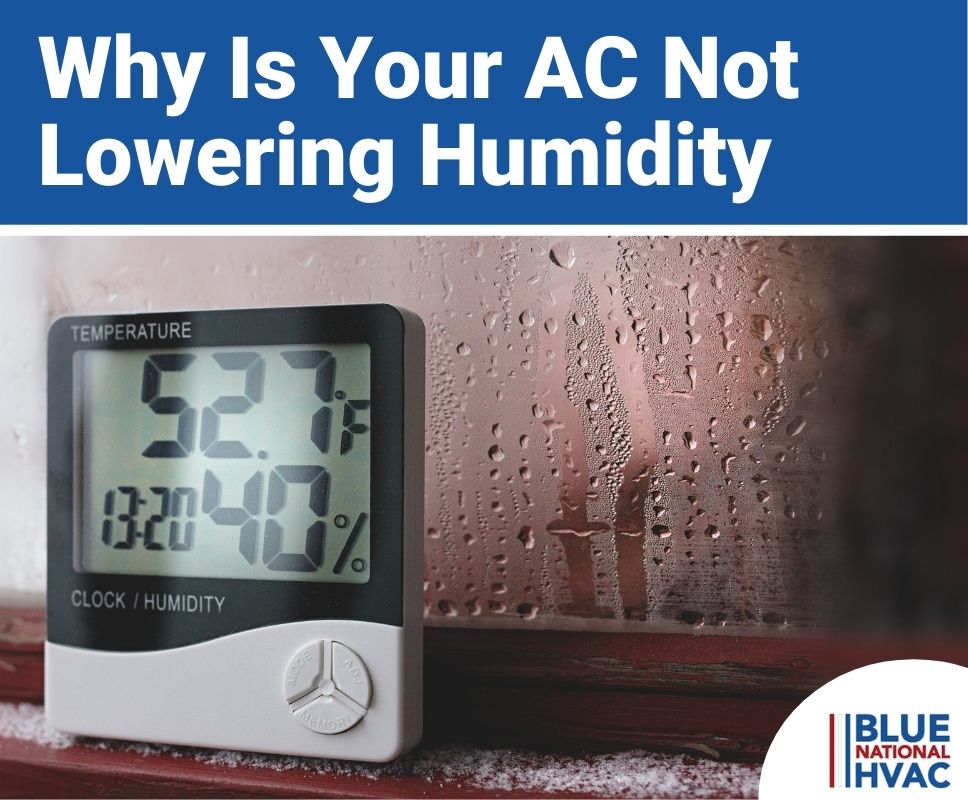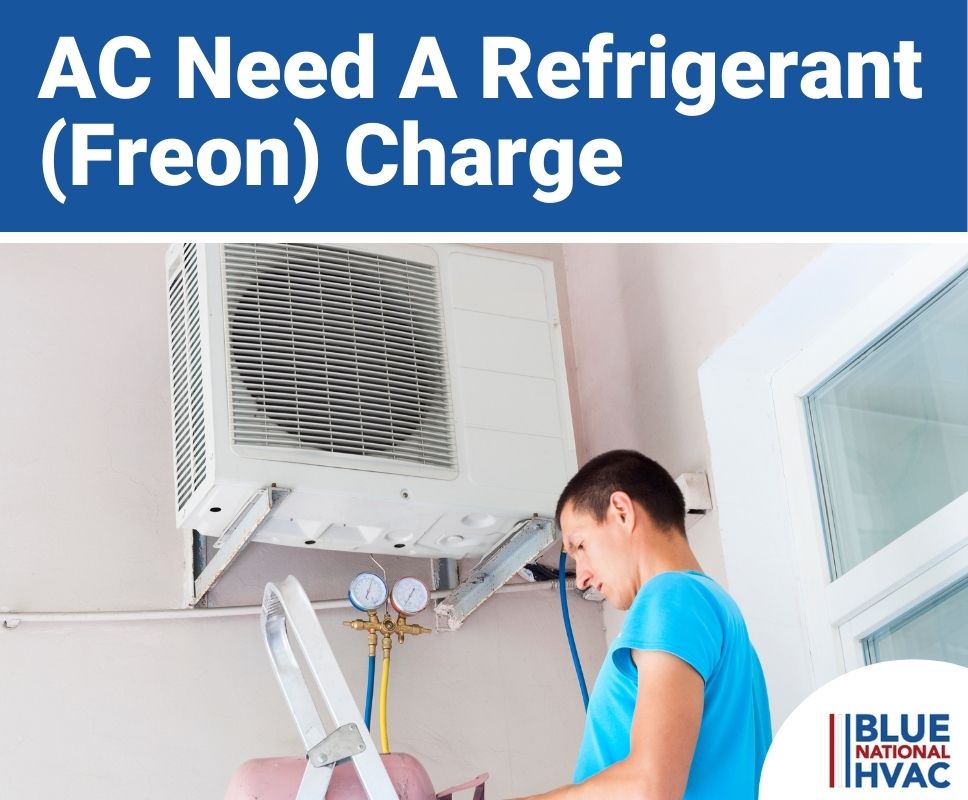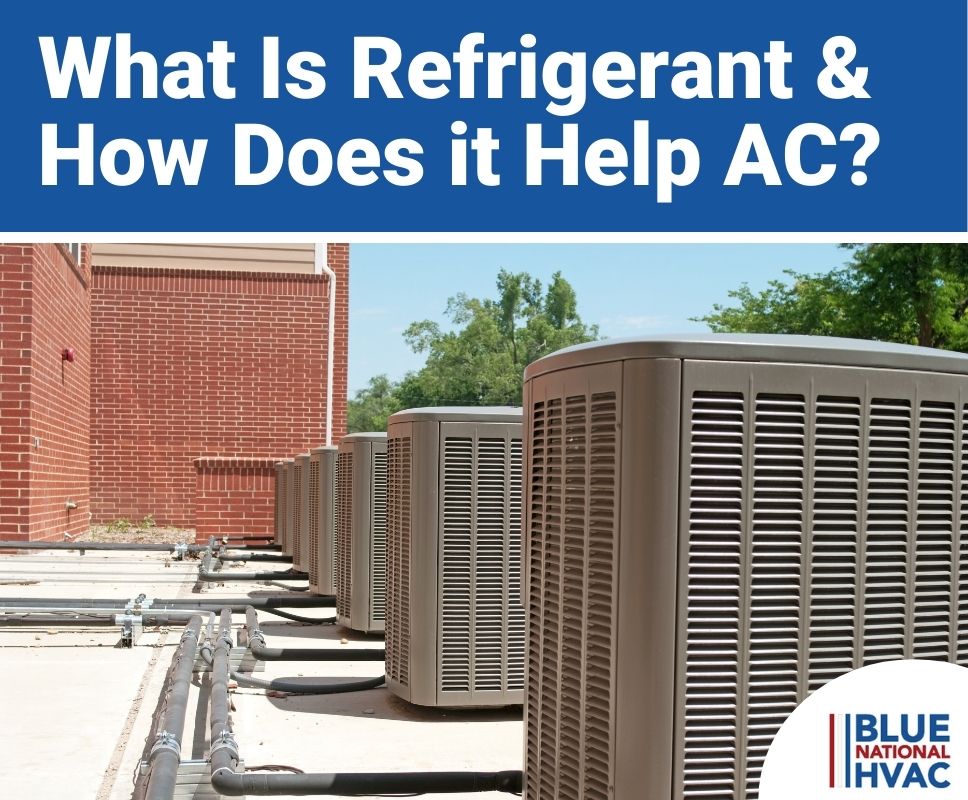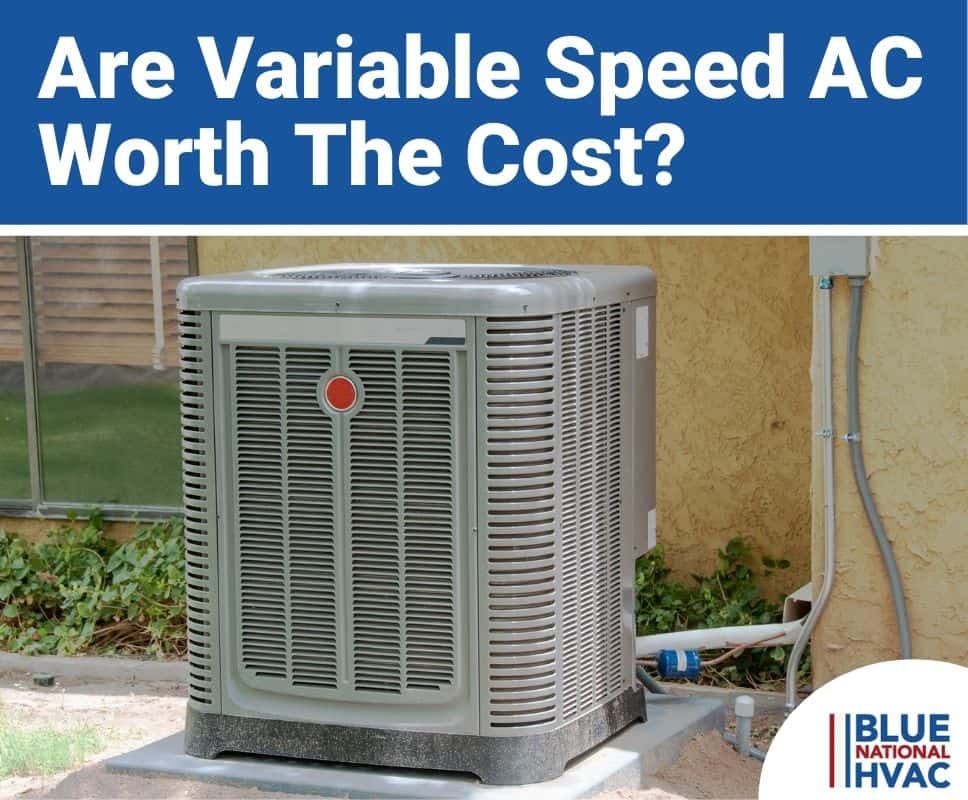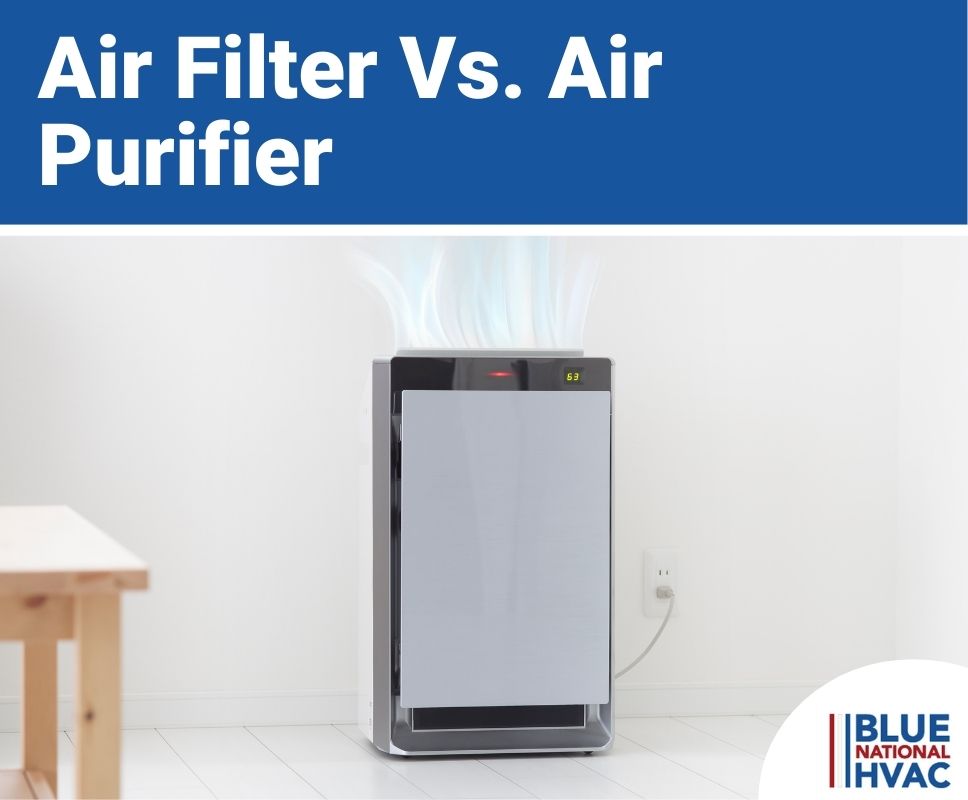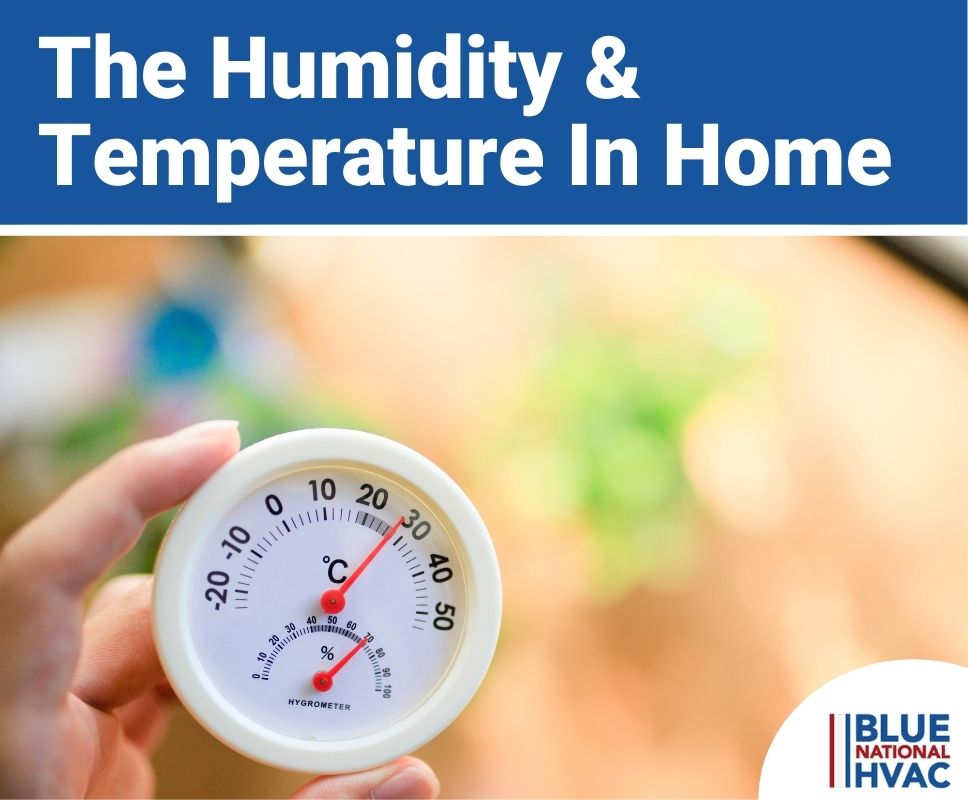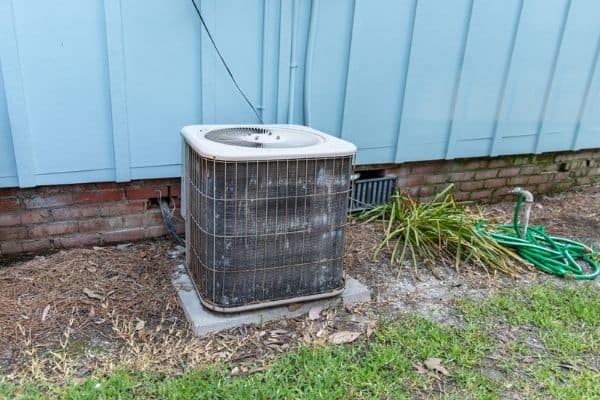Why is Your AC Unit Not Dehumidifying Well?
Depending on the climate zone, season, and current environmental conditions, the outdoor relative humidity can vary from 30 to 70 percent (or more if it is raining).
There’s a handful of reasons why your air conditioner may not be dehumidifying well, ranging from environmental conditions to poor insulation and to problems with the air conditioner itself.
Before we get into the causes of poor air conditioner dehumidification, let’s take a second to learn what relative humidity is and how it affects your body.
What are Relative Humidity and Evaporative Cooling?
If your house is feeling muggy and wet, then the “relative humidity” in your home is too high. The relative humidity is the humidity (or the amount of moisture in the air) relative to the temperature.
High indoor humidity levels leave most homeowners feeling uncomfortable. One of the ways your body cools itself is through a process called evaporative cooling. As your sweat evaporates from your skin, it pulls heat out of your body.
If there is too much moisture in the air (high humidity), evaporative cooling cannot occur since the air is already saturated with water and cannot absorb more.
Causes Of Poor AC Dehumidification
In regular operation, your air conditioner will remove humidity from the air as it cools it. Dehumidifying is part of an air conditioner’s job, and it is designed with an evaporator and condensate drain system specifically to remove all that extra moisture from the air. The water then drains through the condensate drain line to the outdoors or into your sump pit.
Other common causes for high humidity in your home are cooking and bathing. The steam from your culinary adventures and hot showers can and will fill your home with more humidity. That is why both your kitchen and bathrooms usually have a vent fan.
If you’re showering and cooking a lot, your AC unit might not keep up and could leave your home feeling muggy.
If you are not taking hot showers nor boiling water on your stove and your home is still humid, you likely have an issue with your air conditioning system that needs to be addressed. There are many things you can do to help your AC dehumidify your home more effectively.
How Do Air Conditioners Remove Humidity?
In basic terms, your air conditioner pulls in unconditioned air and blows it past the evaporator coils and fins. These coils are filled with cooled liquid refrigerant that removes heat from the air, thus cooling it down.
As heat is removed from the air, water vapor (or humidity) condenses from the air onto the coils and fins. This condensation happens because warmer air can hold more moisture than cooler air, and therefore condensation of the extra water occurs when it is cooled.
The excess moisture (condensation) then drips from the evaporator coils into the condensate drain pan then down the AC drain line. This moisture removal process is how your AC unit dehumidifies the air.
How to Measure Humidity in Your House
The simplest way to measure humidity in your home is to use a digital indoor thermometer that also measures humidity, measured by a percent of 0-100%. They are low-cost devices that can be purchased at most hardware stores, big-box retailers, and online merchants.
If you don’t have a humidity thermostat, you can do the “ice cube test” to determine if your home’s humidity is too high or too low. First, place three ice cubes into a glass of water and stir, then let it sit for 3-5 minutes.
If condensation appears on the outside of the glass, the humidity in your home is too high. Conversely, if water does not condense on the outside of the glass, then your air in your home is very dry. The ice cube test is an excellent way to gauge humidity in your home. However, the best method is with a digital humidity thermostat.
How Can You Help Your Air Conditioner Lower the Humidity?
If your AC unit struggles to keep up with proper dehumidification, you can use the below tips to help it!
In some cases, if an AC unit is too old, it will not remove humidity well and will need to be replaced.
An air conditioner has an average lifespan of 15 to 20 years. If your air conditioner is this old and has issues, it might be time for a replacement.
Aside from age, let’s explore a few other things you can do to troubleshoot your air conditioner’s humidity issue.
Adjust Your Thermostat to Auto
When your thermostat setting is on “Auto,” the fan connected to the blower only runs when the thermostat calls for cooling from your AC unit.
On the other hand, if it is set to “On,” then the AC and the blower will be running continuously, even when your air conditioner is not providing cooling. When this happens, too much humid outside air is brought into your home, and your AC unit will be unable to keep up with dehumidifying.
To solve this problem, all you have to do is switch your thermostat fan setting from “on” to “auto.” Once you change that setting, your air conditioning system will get a chance to catch up with its humidity removal, and if that was, in fact, your AC unit’s issue, the humidity will go away.
Clean Your Air Filter and Evaporator Coils
The filter of your air conditioner is designed to trap dust and debris and prevent them from circulating in your home. If the air filter is left unchanged for too long, dust can get caked onto it and get backed up onto the evaporator coils.
This can cause buildup that could block enough airflow through the evaporator coils to adequately cool your home. As a result, your AC unit won’t be able to remove sufficient humidity from the air.
If left blocked for too long, it can even cause your AC unit to build up enough moisture to freeze in the wintertime, which can lead to other issues down the road.
Air conditioning filters should be checked (and cleaned) once a month and replaced every 4 to 6 months to prevent this type of humidity and cooling-related AC issue.
Run the Air Conditioner More Often
If you are only turning your air conditioner on when you are home, it will eventually get muggy because the AC unit is off for an extended period of time.
If it is very humid outside or there are storms or excessive rain, moisture in the outside air will eventually infiltrate your home if your air conditioner is not on and dehumidifying.
To avoid your home becoming too humid, you should leave your AC unit on the “auto” setting as we mentioned above so it will consistently dehumidify. Leaving it on “auto” isn’t ideal when it comes to energy efficiency, but it is ideal for your comfort in your home. Plus, the more humidity builds up inside, the harder you AC has to work to remove it again.
Add a Dehumidifier to Your Air Conditioner
Suppose you’re living in a very humid climate, like the Southeastern United States.
In humid climates like this, your air conditioner may not be able to keep up with dehumidifying unless you have one with advanced humidity control.
In this case, there is a simple solution – a whole-home dehumidifier.
A whole-home dehumidifier is a separate device that connects to your air conditioner and removes the additional humidity that the AC unit cannot keep up with. While these make great additions to your home’s HVAC system, it’s not advised that you attempt to install one yourself unless you’re an expert. If you’re interested in talking to a pro about dehumidifier installation, give our HVAC experts a call today!
Get Your Ductwork Cleaned and Sealed
Clean and sealed ductwork allows efficient airflow throughout your home. Leaks in your ductwork will allow cool air to escape and humid outdoor air to leak into your home.
Additionally, if your return air ductwork in your system is leaky, it can suck in humid air from outside. This can also be an issue if the exterior walls and attic aren’t sealed well.
On the other hand, dirty air ducts can block airflow, so your AC unit won’t be able to supply dehumidified air to your home as well as it should.
In both cases, higher humidity can be a symptom of these larger issues. If you are having humidity problems, it is essential to get your air ducts inspected and cleaned.
It is possible to do “DIY” leak fixes and duct cleaning. However, it is best to get this done by certified professionals.
Upgrade with a Thermal Expansion Valve
A thermal expansion valve helps provide more refrigerant to your evaporator coils so it can cool and dehumidify more air at a faster rate. If you live in a humid area, an upgraded thermal expansion valve (or TXV) can help your home feel less muggy.
Chances are your AC system has a TXV already, but upgrading it can lead to more efficient dehumidification in your home.
Get Your Refrigerant Checked and Recharged
The refrigerant in your air conditioning coils is a critical component to removing heat and moisture from the air. If your coils develop leaks over time, your refrigerant levels will decrease, and your air conditioner will have reduced abilities to remove heat and humidity.
Some clear signs that your air conditioner has a refrigerant leak are hissing sounds, high humidity levels, warm air coming from vents when set to cool, or iced-over evaporator coils.
Fixing a refrigerant leak and recharging the AC is no DIY task. In fact, the Clean Air Act sets standards for refrigerant leak repairs and refrigerant recharging – only certified professionals can do this.
The Clean Air Act regulations were put in place because refrigerant is harmful to the atmosphere’s ozone. As such, the Environmental Protection Agency (EPA) has created an exam for Section 608 Technician Certification. This certification approves HVAC technicians to inspect, repair AC refrigerant leaks, and recharge the refrigerant.
All of our HVAC technicians have passed 608 certifications. If you suspect you have a refrigerant leak, give us a call, and we will schedule a visit to get it fixed!
Upgrade Your Home’s Insulation
An upgrade to your home’s insulation could help improve the humidity levels in your home. Improved insulation will trap in the cooled and dehumidified air from your ac system for more extended periods of time.
That improvement will allow your air conditioner to operate under less of a load and improves its humidity-removing capabilities.
Repair, Replace, or Upgrade
Sometimes your air conditioner is just not equipped to remove humidity properly from your home. Reasons for poor dehumidification can range from:
- And old AC system – if your air conditioner is getting up there in age, it’s probably not as efficient and because it has many years of “wear and tear” it doesn’t work as well
- Single-speed system – air conditioners with single-speed blowers and compressors are less effective at removing humidity than high-efficiency units with variable-speed components
- Oversized air conditioner – If the AC unit has a capacity that is too big for your home, it will quickly cool your home and short-cycle (turn on, then off repeatedly), which prevents proper dehumidification
- Undersized air conditioner – When the AC unit is undersized, and its cooling capacity is too low, it will not be able to keep up with cooling and dehumidification demands
Our HVAC pros can schedule a visit with you to determine if you need a repair, replacement, or an upgrade to your HVAC system, so get in touch with us today.
When Should You Call an HVAC Pro for Help?
If your home is experiencing humidity issues and you don’t know why you should get in touch with our HVAC technicians and schedule a call.
Our technicians are industry experts and can diagnose and recommend fixes, upgrades, perform a load calculation, or improvements you can do to make your AC system dehumidify better.
They’ll provide you cost-competitive quotes and will get your HVAC system churning like new in an instant.

